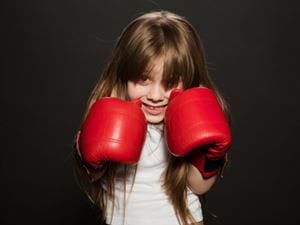
Boy, do I ever hate my nine-year-old son. Hate him! How do I know this? Because he told me so over and over last night after his mother and I took away his portable game device. Thus did a mild-mannered, middle-aged, pot-bellied small town dad become the Worst Person In The World.
That’s fine. We’ve all been there – and if we haven’t been, we’re not doing something right. Like many boys his age, our sweet Lucas has a problem limiting his screen time. He has even more trouble being told that he can’t have something that he wants. So we have these meltdowns every couple of days in our house. They aren’t pleasant, but then again, parenting isn’t always about birthday cakes and Christmas presents.
Miley Cyrus, America’s most prominent child-star train wreck, made headlines recently for her obscene performance on the MTV Video Music Awards. There were many harsh and correct things said about the vulgar display, but none quite as apt as Danielle Berrin’s remark in JewishJournal.com:
“What Miley Cyrus really wants is a spanking.”
That is, says Berrin, the 20-year-old pop tart is expressing “a child’s deep and desperate need for discipline and boundaries.” Cyrus’s showbiz father, Billy Ray Cyrus, and wife Tish turned their young teenager over to the Disney starmaking machine at age 14, and guided her to the heights of Hollywood stardom. Dear old dad even appeared with his 15-year-old daughter in a revolting, sexually exploitive Vanity Fair photo shoot.
Years later, when the younger Cyrus began to go badly off the rails, her father disavowed any responsibility for the lurid embarrassment his daughter had become, blaming her Hollywood handlers.
Nonsense. Miley Cyrus didn’t take herself to Hannah Montana tryouts. When that child needed parents, she found enablers. It’s easy to judge the Cyruses for bad parenting, given that their daughter and her antics are so prominent. The truth is, many of us have more in common with Billy Ray and Tish Cyrus than we like to think. We want so badly to be our children’s friends, to bolster their self-esteem, and to fulfill their desires, that we’re turning them into dysfunctional young adults.
“A lot of my friends are going through a crisis,” he said. “We were all taught that we could be anything we wanted to be. Nobody ever told us ‘no.’ Now we’re out in the world, and it’s ‘no’ all the time. We aren’t prepared to deal with that.”
"The mom let us do whatever we wanted to,” he said. “It didn’t feel right.”
As much as my nine-year-old protests parental discipline and restraint, the lack of it unnerves him. One day, he’ll appreciate what we’re doing for him. My sister Ruthie and I grew up in a household considered strict by many of our friend’s parents. But I don’t remember it that way. I remember our gentle father as giving us kids a priceless gift: a sense of moral order in which to grow up safely. It became the foundation of our consciences.
Ruthie and I both rebelled as teenagers, of course. One weekend, when she was a college undergraduate and the rebellious years were behind her, Ruthie came home for Sunday dinner and told my parents that she had something to say to them.
“That group that I graduated with? Only three of us are left in school now,” she said. “And I want to thank y’all for what you did for me. I know it wasn’t easy to be tough.”
Recalling this story decades later, my mother said to me, “You can’t imagine what hearing that meant to us.”
Oh, but I can. I imagine it every time I hear a sullen nine-year-old boy tell his father, “You hate me!” Thinking of what Lucas will say to me when he is older, and understands this, helps me bear his anger and insolence.
Hate is what a father’s love feels like to a child who rebels, and who demands his own way over what is right and good. St. Thomas Aquinas taught us that, “To love is to will the good of another.” Every mother and father who has had to choose between what their children want and what their children needs must face this hard truth, and to know how heartbreaking it is for our child to resent us for loving him this way.
As it is for us, so it is to our Father in heaven. When I was a teenager, and running far from Him, I thought He was harsh and judgmental and hated me. I learned the truth much later, after serious suffering brought on by my own sinfulness. If He had the love to abide in truth for me, I can do the same with my own dear son, in whom I am well pleased, despite it all.
Rod Dreher can be reached at rod@amconmag.com

